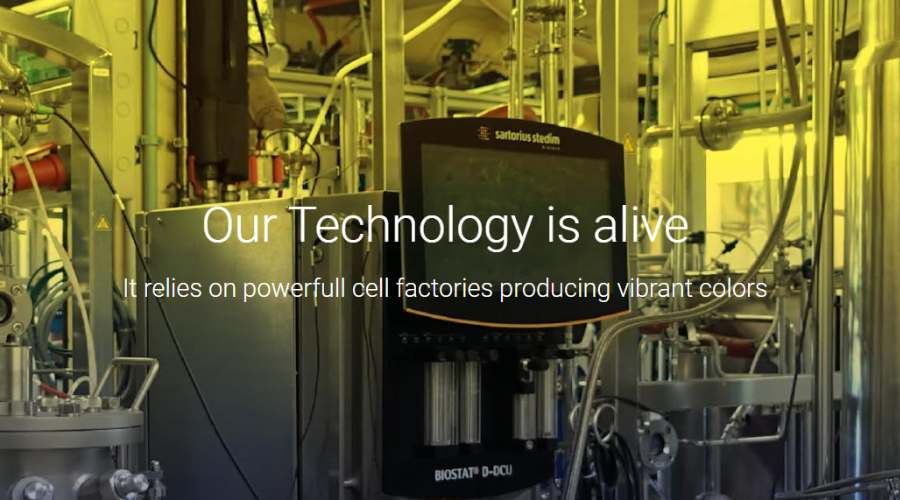Many rivers around the world are visibly polluted with wastewater from the dye industry. But that’s just the tip of the iceberg. Not only does the color industry release toxic chemicals into our rivers but it also requires incredible amounts of energy and clean water to produce colors.
There’s one French startup, however, working to change this. By “partnering” with microbes to create vibrant colors, PILI aims to reduce the environmental footprint of the conventional dye industry.
Unveiling PILI's Inspiring Creation Journey
Back in 2012, designer Marie-Sarah Adenis and biologist Thomas Landrain realized how polluting ink production was. After discussing this issue, they came up with the idea of creating a “semi-living” pen that would contain dye-producing bacteria. With this, people would only need to “feed” the microorganisms to obtain ink infinitely.
After recognizing how this technology could change the way we currently produce dyes, they partnered with Jérémie Blache (their CEO) and Guillaume Boissonnat, (their scientific director). Since its launch in 2015, PILI has invested over €30 million to industrialize its processes.
PILI Says Its Technology is “Alive”

The French startup relies on “cell factories” to produce vibrant and high-performance dyes. This innovative dye technology is based on industrial fermentation and green chemistry, enabling the company to produce sustainable pigments. Unlike conventional processes, this technology doesn’t rely on fossil fuels or toxic chemicals.
With the use of re-engineered microbial enzymes, the startup can turn renewable carbon feedstocks into pigments. In this fermentation process, which is similar to making beer, microorganisms use sugar as their main food source to synthesize colored products.
Thanks to its advanced technology, PILI’s processes produce no harmful by-products and its final products are free of microorganisms.
How PILI’s Technology Could Change the Color Industry
One of the current problems with the conventional color industry is how harmful it can be to the environment. Cell factories, on the other hand, are a highly scalable technology that can produce sustainable colors without requiring large amounts of water or energy.
While conventional dye processes require large inputs of energy to heat their mixtures, PILI’s microorganisms grow at room temperature.
PILI’s innovative technology has the potential to make the color industry more sustainable. Its technology can reduce the industry’s reliance on polluting chemicals and prevent the production of water pollution.
“The real challenge, of course, is to make this biofactory increasingly competitive, by optimizing the various steps - fermentation, extraction, purification - so as to ultimately compete with petro-sourced dyes.” Jérémie Blache, CEO, PILI
Although the company currently focuses on textile applications, it also develops bio-based pigments for the ink, polymers, paints, and coating industries.
Final Thoughts
A long time ago, the color industry replaced natural dyes with synthetic alternatives because of their low-cost production, easy availability, and simple application. While plant-based dyes are an eco-friendly alternative, they are currently unable to meet the industry's demand.
That's where PILI found a gap in the market that could be met by microbial fermentation. With higher productivity and a lower environmental impact, PILI offers an alternative to synthetic dyes without increasing costs or sacrificing performance.






